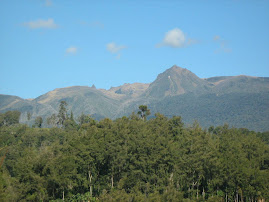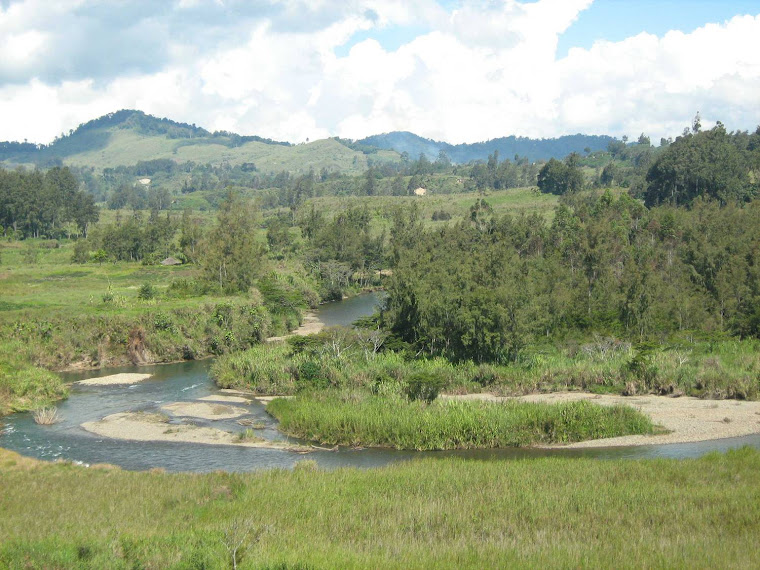This article was published by Sunday Chronicle newspapers Sunday sept 20, 2009 under "Asia Pacfic Perspective: China +" column
.....................
By Mathew Yakai
TODAY, many people think that Chinese are new comers to PNG. That is not true.
Historical evidence with academic researches proves that Chinese have been in PNG even before colonization started.
Chinese traders have visited New Guinea (PNG and West Papua) and hunted Birds of Paradise for their trade. But these early Chinese arrivals did not stay for long and did not establish permanent settlement.
These happened before the Portuguese and Spanish navigators sailed the South Pacific and spotted New Guinea.
Spanish explorer Don Jorge de Meneses accidentally saw New Guinea and named it “Papua” in 1526-27 after the Chinese set foot.
After Germany colonized the northeastern part of New Guinea Island in 1884, it entrusted Neuguinea Kompagnie with the administration and economic development of the New Guinea area.
The company started plantations for tobacco and copra in mainland New Guinea and the Bismarck Archipelago by recruiting Chinese indentured laborers, mostly from Singapore and Sumatra living under harsh working conditions.
In 1895, 28 percent of those laborers died and were buried in mainland New Guinea. Most of these Chinese laborers left for their homeland after the indentured period,
Beginning in 1898 when the German colonial government took over the administration from Neuguinea Kompagnie, Chinese free immigration was promoted instead of indentured labor.
Chinese workers were engaged as carpenters, ship builders, engineers, tailors, shopkeepers and managers of plantations.
Some of them began to settle and establish communities in towns, such as Rabaul, Kokopo, Kavieng, Lae and Madang.
Rabaul, which became the capital of German New Guinea in 1910, received an especially large number of Chinese settlers estimated at 200, and grew to 1,427 in 1913.
In Rabaul and Lae, Chinese immigrants established Chinatowns where the residence of Chinese was restricted to certain areas.
During this period, Chinese immigrated not only from Singapore and Sumatra, but also from Hong Kong and mainland China.
Most of the early Chinese immigrants were unmarried men, and some of them married local women. The children of mixed blood Chinese were brought up in the Chinese community and educated as Chinese.
In 1898 when free migration was encouraged by Germans, second waves of Chinese came with the intention to settle.
Today they have third generation children living in PNG playing major roles in PNG’s development, both business and politics.
In the late 70s and early 80’s, another wave of Chinese arrived. These include Malay-Chinese, Indo-Chinese etc and not necessarily from the Mainland China. They were mostly driven by business motives.
This is an example of global trend whereby migration of skilled workers, capitals and goods invade sovereign states to cater for complementarity economies.
Under the international and regional norms and values, countries do accept the flow of skilled labors, allow foreign investments and trade with other countries in compliance with their domestic laws.
Given this inevitable geopolitical shift and economic dependency, the relevance of trade and commerce compels nations to cater for the flow of capitals, labor and investments. China and PNG are no exceptions in this complex to enable them survive in the global economic order. Thus, Chinese are old friends to PNG.
Today, new waves of highly skilled technical Chinese workers enter PNG, for specific Projects. Ramu NiCo Project is a good example. These Chinese engineers are working in Basamuk Refinery site and Kurumbukari Mine site.
This is an obvious trend of new cooperation between PNG and China on a win-win situation.
The first groups of Chinese are for the construction phase which is expected to be completed this year with the next group of engineers joining their colleagues for the commissioning of the Project.
Among other things, language is a challenge. To address that, the Company is engaging with the Divine Word University in Madang to provide language and culture training to the expatriate employees.
In Beijing, most engineers are now studying English language in preparation for their deployment. Luzheng Jie and Muxinying are two young engineers specialized in Metallurgy. Both speak good English.
“I am excited to go to PNG. If I love PNG and its people then I can make good friends with the country,” Muxinying said
Their work in the Ramu NiCo Project will help them depart to the local staff the knowledge that is new to PNG.
Wang Jingfeng and his colleague Meng Zhaosong who are also engineers with good command of English prepare to work with their PNG counterparts soon.
In his nation wide speech through NBC and Kundu Service TV June 1, Prime Minister Sir Somare who initiated this investment and invited Ramu NiCo Project appealed to the people that PNG can learn a lot of skills from the Chinese engineers.
National staff who now work with their Chinese counterparts have acquired the technical skills of various natures.
Sir Somare also said that foreign investment contributes huge revenue in tax to PNG government.
The Ramu NiCo world class Project will see 1.37 billion USD invested over a period of 20 years with 8 to 10 per cent GDP growth, K10 mil in spin-off business opportunities 1,300 jobs will be created and K8.3 mil will be spent on local community services which will create another 1,500 jobs for PNG nationals, according to the Ramu NiCo 2006-2008 Sustainability Report.
At the regional level, PNG remains the largest trading partner with China compared with other Pacific island countries, including Australia and New Zealand.
During his last visit to Beijing in April 2009, Sir Michael told his Chinese counterpart Hu Jintao, “China is not only a big and growing consumer market for PNG products, it is also a genuine development partner.”
The total trade volume between PNG and China was around K700 million in 2007. PNG exports to China were around K470 million and imports were around K230 million.
PNG enjoys a trade surplus of around K240 million with China,” Sir Michael said
PNG’s exports to China constitutes mainly of crude oil, logs and timber products, agriculture products such as palm oil, rubber, vanilla and coffee, marine products, copper and gold.
PNG’s imports from China consist of rice, machinery, mechanical and electrical appliances, textiles, iron and steel products, pharmaceutical products, plastic products, footwear, fertilizers, tools and household goods.
The two economies are complementary. That is, PNG has what China does not have and China has what PNG does not have. This will encourage and strengthen the two countries economic relationships for a win-win- situation.
The two old friends, China and PNG do stand to benefit in the long run in this new cooperation given the interdependence world they live today.
Old friends do share many commonalities and the same passion and desire in life. China and PNG are no exception today as their old friendship bondage binds them for common goals through the current cooperation.
Note: This article was first published by “UPDATER” Ramu Nickel Projects newsletter. For comments contact m_yakai@hotmail.com or SMS 71489901
.
American movie include Fijians as cast and crew
7 years ago








